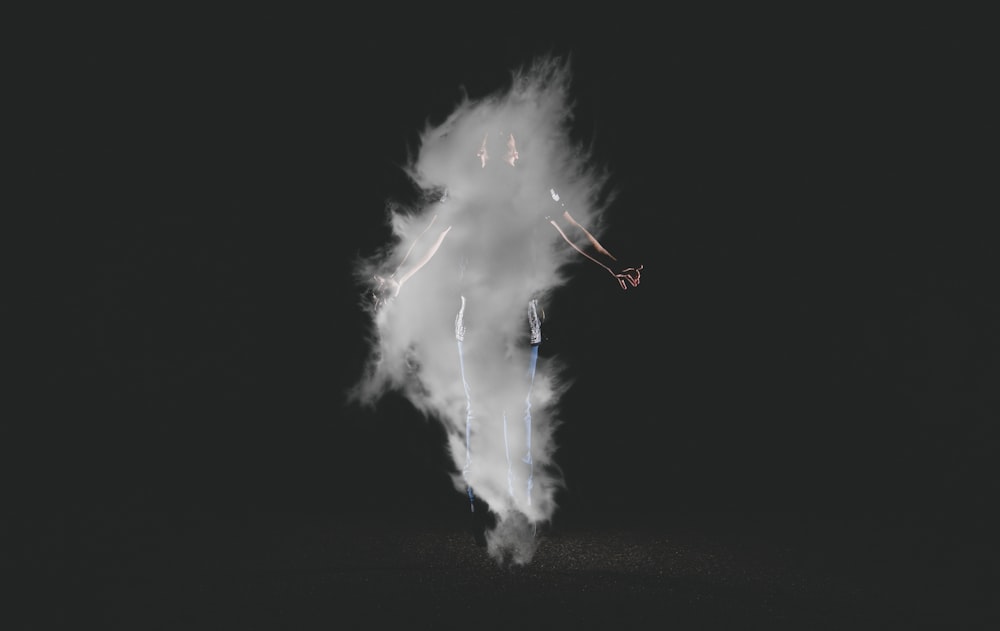Repurposed with Permission from Quiet Writing, a blog from Terri Connellan
Welcome to Episode 12 of the Create Your Story Podcast on Personality Type Coaching and Social Media.
I’m joined by Joe Arrigo, Personality Type Coach, INTJ and LinkedIn & YouTube aficionado.
We chat about Joe’s journey to psychological type and type coaching and how he shares and connects with people on social media around personality.
Transcript of podcast
Introduction to Joe and Personality Type Coaching
Welcome to Episode 12 of the Create Your Story Podcast and it’s the 11 of February as I record this. I’ve been enjoying two weeks of The Writing Road Trip Free Challenge inspiring and chatting with writers over the past two weeks with my writing partner, Beth Cregan and launching The Writing Road Map short course which starts on 28 February. More on that in a moment.
I’m excited to have Joe Arrigo join us for the podcast today to chat about Personality Type Coaching and Social Media and it’s a fabulously fun and deep conversation all at the same time with two INTJs, type coaches and social media lovers chatting.
Joe Arrigo is a newbie to the professional Type space. What started as a mild interest exploded into an obsession and a coaching business. His goal is to help people find their place in the world by bringing clarity to their personality type. Joe believes that the most important aspect to self-improvement is first knowing yourself. Everything else branches out from there. If a stubborn INTJ like Joe can have a transformation due to Typology, it can certainly do the same for others. He resides primarily on Linkedin and YouTube, and tries to bridge the gap between the Old Guard and New Guard of type.

Joe and I met on LinkedIn through our love for social media and via our mutual interest in personality and psychological type, particularly through the Australian Association for Psychological Type. (AusAPT). I’ve had the pleasure of attending Joe’s session at the AusAPT 2021 Conference on being a new type coach and learnt more about his journey in psychological type and personality. But there’s so much more I didn’t know about Joe and there was so much more to explore.
Today we will be speaking about Joe’s work in personality type and coaching, the magic of understanding type as a lens and language in life, being an INTJ and understanding your type, the power of focusing on your weaknesses, social media especially LinkedIn, social media and introverts, and how to be more visible on social media.
Transcript of interview with Joe Arrigo
Terri Connellan: Hi Joe, welcome to the Create Your Story Podcast.
Joe Arrigo: Oh my gosh. Thank you for having me. I just want to say upfront that I invited myself onto the show. I saw your posts on LinkedIn and I didn’t even know you had this thing going. So I was like, I absolutely need to be here. So thank you for letting me be here.
Terri Connellan: I’m so honored. That was great to receive your thought that you’d love to be on the show. I’m really excited to chat with you today. So we’ve connected around the personality, psychological type, via social media, and also through the Australian Association for Psychological Type where you joined us as a speaker at our recent conference, which was really exciting.
Plus we’re both INTJs so that’s really exciting to chat about how we see the world with similar preferences. So can you provide a brief overview about your background, how you got to be where you are and the work you do now.
Joe Arrigo: Yeah. So what I usually say is that I was in film school and that I did what every film graduate does is after they go into sales because the film doesn’t work. And, so I did sales and I was like, a sales development rep and I was doing cold calls and things like that. And I was a recruiter and then COVID hit and I got furloughed and then, I was just like, maybe this MBTI obsession that I have, I should try to do something with, while I have the perfect amount of time in life to do this. I probably would never get another time in life where I get to have like commission checks still coming in, but like, they’re paying me to not be there. Maybe I can try to get this business going.

And that’s kind of the quick story of the furlough allowed me the time to start doing MBTI work. And, I always say that it’s sort of a synchronistic Carl Jungian type, like the door opened and it was a signal and it was like fate and I just said, okay, I’m going to do this thing. So that’s the very short story. I thought I was going to do a lot of corporate workshops. But I really found passion in one-on-one coaching. I think it’s the more intimate, the more you get to know people more that you can really apply type. I just thought that the corporate way would be better, but it’s not as good as doing one-on-one coach.
Terri Connellan: Yeah. I love one-on-one coaching too. And I think that’s that ability to really engage with individuals about their story that I love.
Joe Arrigo: Yeah. It’s interesting. There’s a lot of like every story is unique and I believe that for the most part, but I think that every one is a puzzle. Not to solve. I don’t want to say to solve, but there’s a unique aspect about them that I think the INTJ is really well suited for. Like helping find that missing piece or something.
Terri Connellan: Yeah. That’s a great way to think of it. I hadn’t thought of it as a skill for an INTJ coach to help solve the puzzle of the person. I guess that’s what I do, but you’ve said that beautifully. So thank you. That’s a great insight. So just to chat further about that, personality and psychological type of key frameworks that you employ in your work. Why did you choose to specialize there and how does type help people be more whole and self-aware?

Joe Arrigo: Well, I think type is universal. It’s always applied to people since we crawled out of the ocean type has always been something that applies and doesn’t matter what time period you’re living in. It doesn’t matter what age you grew up in, type can apply. You probably agree. We like the universal things, like personality type has always evolved, but like the core of the people stay the same, but it’s always evolving slowly over time.
So it really appealed to the authenticity, my Introverted Feeling, which was, I want to do something that is real work. And I was kind of doing jobs that were selling other people’s products or stuff that people didn’t need. So that really felt inauthentic to me. I also want it to be productive. It’s funny, I say this because I’m really good at LinkedIn, but there’s a lot of people that have made a career on being a LinkedIn coach or being a LinkedIn influencer, which is to me like the last stage of just like, it’s so meta for a job, but it doesn’t really help people. Personality type and psychology is always about helping people, so I think that’s what I gravitated towards.
And to answer your question about how to help them become more self-aware I think it’s that universal shared language that Jung created. Learning type is a new language. You are learning a new language. That is the hardest part. That’s where most people get stuck. But once you learn the language, you can articulate yourself to yourself or to other people in a way that previously you were like, I’m the only one that thinks this way. There’s no one else who has ever had these thoughts before. And now you’re like, wow, this is what that’s called.

I think Ni [Introverted Intuition] for me was like, oh, that is the thing that I do. But before Jung, I don’t know if people knew what that was called, that shamanistic quality, I guess. I like to say that it’s when it’s that point in life, where you go from standard definition to 4K definition where you’re like, wow, I didn’t know what I wasn’t seeing.
It’s like when you put on glasses for the first time, you’re like, how did I live my life like blind before? How did I even function? And so that’s what I got out of it. And, I think it applies to most people.
Terri Connellan: Yeah. I love that. And I often say to people, working with personality type and understanding your type is like having an operator’s manual for your personality. So similar to what you’re saying, it’s that ability to have both the language and the framework. I often talk about frameworks to be able to make sense of…And you mentioned Ni which is that Introverted Intuition that we both share as a dominant function and certainly for me, and I know working with others, understanding what that Introverted Intuition for example is about and what it’s like and why I do what I do was just like magic. Wasn’t it?
Joe Arrigo: It is. I think all the functions have their own magic to them. I don’t know if you feel this way, but I think Introverted Thinking types are interesting to me because their capacity for deep diving into a subject or understanding that true essence of a thing is like unparalleled. But all the functions have their magic to it. I think in the community, there’s a rush to talk about Ni as if it’s like, the only one, the best one, that’s probably just like more NT types being in the community so they pump themselves up about it. But all of them are special, I think.

Terri Connellan: Yeah, absolutely. I agree. Just for those who are listening who don’t perhaps know about the types. There are 16 types, which you might’ve seen, the Jung/ Myers-Briggs types and we’re talking about INTJ, which we share. But as Joe has mentioned, all 16 types, all of the cognitive functions have their strengths, have their values and have their unique way of working.
And, there’s eight cognitive functions or cognitive processes, which came from Jung’s psychological type work. So, I’ll put some links in there for people who maybe want to know a little bit about that. So, I love that idea of that universal shared language. And where I really experienced that is at a type conference. And it’s the same on the internet, people who understand type, it’s just an ability to make connection as with any community where you have a shared language and shared understanding. But I think the real value for me is that it’s about personal development, personality development, understanding yourself and understanding others.
Joe Arrigo: Yeah. And I’m writing something now. I don’t know where it’s going, but I’m writing something now about that’s why I value the one-on-one coaching is because it’s first about understanding yourself. And then only then can you do anything about your interpersonal relationships. So I think like presenting type to a bunch of newbies at a workshop has some utility, but you can’t get that nuanced approach that you can with a one-on-one. So I think that would be the way to go if anyone’s like here’s this podcast and wants to move forward. I would say like getting involved with a coach one-on-one is probably the best path for development, rather than a workshop or something.
Terri Connellan: Yeah. I totally agree. I think the value of doing that deep inner work. And to me, it’s an ongoing thing. You start, you get your frameworks, you start to learn the language, the skills, get the insights, connect with other similar and different folks in different ways. And read the books and I think that group aspect and that interaction aspect is much stronger once you understand a bit more about yourself.
So we both have INTJ preferences as we’ve mentioned, so that’s introverted, intuitive, thinking, judging, and it is one of the rare of the types. So tell us about your personality type and the psychological insights you’ve gained over time that have helped you with self leadership and with personal growth.

Joe Arrigo: That’s so funny. People kept telling me that I had a bad memory and I was like, no, I have a good memory. I remember things. But then once I learned type and I learned the cognitive functions and I have memory for weird things, but I don’t have like a photographic memory.
So like first thing I learned was like my weaknesses, bad memory. The misunderstandings that come along with some of the jokes so that I would tell, or like the subtleties that I thought were really funny, but people didn’t understand it. I didn’t get why, what they didn’t get. And that was like part of the Extraverted Feeling that I’m not very good at.
So I learned my weaknesses and I go, okay, that’s what I have to deal with, these are my paths for growth. But some of the successes I attributed to being a pretty good thinker, extraverted thinking and taking action, being effective and not just having the wild-eyed idea, but then be like, okay, what are we going to do about it?
So I learned that, but then once you know what that’s called, then you know how to use it. If you don’t know what anything’s called, then you’re just like, assuming that you’re just walking around just like everyone else. So kind of like a zombie where you just don’t know you have no direction.
But, I think I learned that I had drive, that came out of my personality. Like I, and you probably feel this way, if you see something, you see the road very clearly, then it’s almost an inevitability that it’ll happen. As you get older, you’re just like, okay, I thought about it, I’ve planned. It. The only thing is like, when is it going to happen?
I learned that the worst thing to say to an INTJ is time is running out because like you want to accomplish all this stuff. But I learned that I had a vision that I couldn’t explain and that it wasn’t doing me any favors to try to explain something that I wasn’t really sure where all the dots were connecting or all the lines of best fit were coming together.

I thought it was funny that they would call INTJ’s a conspiracy theorist. And that’s just because the lines that connect don’t quite make a lot of sense. So I learned in my speech and when I pitch projects to people or pitch ideas, I have to be like, don’t take your crazy idea and tell them like, take the more linear approach and do it that way. So I learned that in the first one or two years of understanding myself.
Terri Connellan: Yeah, I really relate to those too. As you were talking, I was thinking about how I’ve experienced similar things in my life. And one area is in leadership, for example. So I would know as a leader where I wanted to go, I could see the vision. I could see where I wanted to take people, but I really had to then break down that vision into the practicalities, the steps of, we need to do this and here’s why we need to do it. Both for myself and for other people. Because I think one thing that can happen if you’re not connected with the practicalities and tapping into the logical steps side of ourselves too, is get carried away with the vision itself. You’ll get it done, but maybe it’ll take longer because of not rooting yourself in the practicalities of it. Do you relate to that?
Joe Arrigo: I do. I do think we’re willing to try out a bunch of ideas and not be sad if they don’t work. But I do think that there is a bit of idealism that the INTJ has about how things will turn out. So I think like when Keirsey kind of put the NTs as the Rationals, I think NTs actually can be very idealistic about things too. So like, are you being practical with this idea? Like you’re going to create the first trillion dollar company? I don’t know. Joe, how do you think that’s going to happen?
Terri Connellan: The other example I thought of is when I come up with an idea, say for a group coaching program, it’s the sales page that is the hardest part for me. It’s how do I take what I know it’s going to look like, what I know is going to be great for people into language and into something that’s going to connect with people. And again, it’s tapping into that feeling and it’s almost like slowing yourself down to have a really good look at, so what is this actually going to do for people? And how can I put that into words?

Joe Arrigo: I struggle with that. I’ve struggled with this whole thing. And I talked to a lot of INTJs, NT types that for coaching, psychological type specially, personality, the ROI for our customer is not always apparent. If I’m a sales coach, I’m going to say, oh, in the next year, you’ll have a 10% better return because I’m going to write better sales scripts. Like it’s super easy to quantify that ROI. But for some people it’s like understanding yourself better isn’t a number. That you can go, like you’ll understand yourself 75% better, or you’ll have 33% better communication with your spouse. Like good luck trying to quantify that. I always go like, if people are asking, well, what am I going to get out of it? They’re not the right customer for me.
Terri Connellan: It’s funny, isn’t it? We’re talking about one particular personality type, but what we’re sharing too through how we’re talking is that this is the same, in a coaching conversation, in a one-on-one conversation, particularly using type insights, it’s clarity you can get to help you be clearer on your strengths, but also your blind spots.
Joe Arrigo: Yes. Sometimes I think just the weaknesses are better because your strengths are always going to be there. You’re just going to naturally either plateau or get a little better as you get older with your strengths, but the weaknesses are where you can have that real growth.
Sometimes, I think it’s just helpful to focus on the negatives out of the gate and manage the way forward. There’s some people that talk about balancing your functions or like doubling down. I think doubling down on your weaknesses or on strengths is good, but I don’t think you’ll balance. There’s no such thing. You’re just not going to balance like, be the same level of intensity and awareness of all of them.
Terri Connellan: I relate to what you’re saying. What I find in my coaching is I like to focus on areas for development and often it’s just one small thing which can be tweaked. Like it doesn’t have to be huge. Sue Blair’s particularly talked about how just making some minor differences, just a small tweak in some of areas which might be our weaknesses or our blind spots or our non preferences can make a huge difference to everything.
Joe Arrigo: It’s funny. It’s like you talk to, for those that know the type you can, you’ll laugh, but for those that know the ENTP, you’d be like, I think that sometimes ENTP can be a bit, you know, argumentative. They’re like, no we’re not. Okay, you’re not even aware of that thing that you just did! Once you put that mirror up in front of people, they’re like, oh, I guess like everything’s a debate, even if I agree. So I think all the types have that moment, they all have it. If you’re, if you’re decent enough at coaching the model, they all have this revelation that’s life changing.
Terri Connellan: I think probably that journey we went through ourselves is exactly why we chose to get into type coaching, using type in our coaching because we saw the huge difference it made for us. So, I think the majority of us working in this field would have had that same revelatory moment.
Joe Arrigo: Yeah. I haven’t asked everyone about this, but I’m sure that like 99% of the people that are in type had that light bulb moment. Like there’s nothing else I can do with my life besides this now.

Terri Connellan: Yeah. For me, when I went through my transition, I made a list of my things I wanted to do to shift from the job I was in to the work that I do now. And top of that list was get skilled, more skilled in personality type. So it was right up there. So we met through social media, particularly LinkedIn, and you have a passion for social media and very active on LinkedIn. And you also have a great YouTube channel and you’ve got inspirational posts, great engagement. So interested to explore that area with you. Why do you engage so actively on social media and what do you love about it?
Joe Arrigo: I think it really gives me a chance to be more extraverted. Like there’s certainly a persona online. I do think my authenticity comes across. I’ve had many people say that I’ve met in person or just like had real intimate conversations with it. Like, oh, you’re the exact same person that is represented. So there’s not like a big change. I can just tell some people have a real difference in their persona and their real life.
And I think it’s just a good creative outlet for our type. I wasn’t really good at graphic design, but I knew that I was so jealous of people that could do it. So I learned through Canva and made some cool designs, then I started doing some memes and I’m like, I can learn this and I can expand my creative outlet, which I don’t think INTJs, are known as being very creative in the artistic sense. But I think, LinkedIn and social media gave me that outlet I would not have had before.
And then it gives me a place to reach people, possibly clients or reach people that just through normal networking I wouldn’t be able to meet. It gives me a chance to let all the vision and stuff come out and see how other people actually respond to it.
Terri Connellan: Yeah. I love seeing your posts and seeing how you interact with people. And I love too that you see it as a chance to be more extraverted and I think that’s true. It’s almost like being extraverted on your own terms, like choosing when you engage, choosing when to create the material, but then being able to connect with people, have the conversations you might have perhaps at a function if you were together, but asynchronistically in our terms, when it suits you, managing your energy. So, that’s an interesting perspective and I definitely agree, creativity is definitely a big one for me.

I love the creative aspect of social media. I tend to focus more on Instagram. That’s the place where I hang out. But, I love watching your LinkedIn and I think many could learn from how you bring that creativity, that engagement, and particularly memes and using video. You use video a lot too, don’t you?
Joe Arrigo: Yeah, it’s more time consuming. It gets less views and engagement on LinkedIn, but, I’m just convinced and many books have been written about this, that they see you, they see how your mannerisms are, they see how you talk, my wife is in a lot of my new videos.
So, Joe is a real person, he doesn’t have like a PR team of social media managers that are answering his emails or stuff like that. When they’re ready to engage with me, if they’re like, oh, it’s like, this is the guy, I already know him. So that helps a lot with building trust because you need that with what we do.
Terri Connellan: Absolutely. And it’s just a fantastic way to connect. Connecting with people in the field, like, Dario Nardi and the guys from Personality Hackers, yourself. Authors for example, I love connecting with people who’ve written the books that I read. I just think that’s gold.
Joe Arrigo: Yeah. Gosh, I really took a different path. I read a lot. I read all the books before I got really involved with the YouTube community. I’ve been kind of making my way through a lot of the books. I know that you have a book, right? Is it fiction?
Terri Connellan: Yeah, my book’s, Wholehearted, it’s nonfiction, self-leadership for women in transition, and I weave personality type into that book.

Joe Arrigo: Okay. Well, that’ll be one I’ll have to read then I’ll have to get a signed copy though. So, and I think I’ve had some luck. I’ve had some people kind of pull some strings on my behalf. I just interviewed Linda Berens, which is great. I got to interview John Beebe, Dario, of course. So yeah, those are the people that really have pioneered parts of personality type that we need that knowledge, especially as a young type coach. I wouldn’t go to YouTube right away before you have the basics, like have the real structure of it settled. So, I’ve been really fortunate to talk to those people.
Terri Connellan: Yeah, and I think that ability to have conversations like this, or I know you do the LinkedIn shorts for example, have chats with people. So it’s all great ways to connect and to learn, to engage and do it on our own terms and in ways we can manage our energy as introverts particularly. So do you have any specific tips for LinkedIn given it’s a platform that operates a little differently? A lot of people in my community for example, are on Instagram and Facebook, not so much on LinkedIn and I know some people find it more challenging than other platforms. So what tips do you have for LinkedIn, for people engaging or getting into that platform?
Joe Arrigo: To come up with a consistent way that you can provide or create content. I wouldn’t say get as stringent as a content calendar, but be consistent. If you’re going to post, make yourself post a certain amount of times per week, around the same time so people get used to that. People follow you. They might not consciously know, but they’re like, Joe always posts at 7 45 Eastern time and he’s always in the morning. And so that helps to be consistent. It also makes you create content. I think consistency is better than like the absolute best content in the world. Some people say, don’t post, unless it’s fabulous content, but most LinkedIn influencers and people that have grown a decent audience will say consistency is the most important thing.
I would say have a real opinion that’s not manufactured. Commenting on the new story of the day is great, but it doesn’t provide anything new. So if you’re not going to be adding something new or unique or a new spin. Think of something, keep thinking until there’s something like, wow, that’s a unique thought.
Respond to comments. A lot of people post and then never respond to their audience. So that’s a quick way to alienate people like, oh, he’s just in it to get likes and clicks and he is not in it to actually engage. I hate when people do that. And then proactively connect with people. So don’t wait for your inbox to fill up with invites. For six months, I was only searching for people by their type on LinkedIn and a ton of people put their types. I was just doing quotes, INTJ. And I was like adding all the INTJs I could find.
And then I did ISTJ the next day. So then you can connect. Then I was doing MBTI certified. And then I was finding all the MBTI folks. So that’s how I built up the community that way. And then just mix up your content, videos, memes, texts, pictures. Don’t just be a text poster.
Some people will definitely disagree with me. I know there’s one person who’s like all text posts cause it helps algorithm. But I think seeing your face on video really is helpful even though it’s way more work. So I think those would be my tips.
Terri Connellan: Yeah, great. That’s so much value in those quick tips you’ve given us. And, I think that idea of proactively connecting, particularly around the content that you’re creating and going, seeking out connections is a really great tip and it can apply to anything, can’t it? Like if you’re in recruitment or coaching or authors for example, anything you do, you could use that same technique.
Joe Arrigo: Yeah. I do some side coaching on LinkedIn. I don’t advertise it, but people will just ask me if I can help. You would be so shocked at what people will put on their, About section on LinkedIn. That’s a searchable term. You could just put like, A Trak enthusiast or collector of stamps. Put that in on LinkedIn. And there’ll be like thousands of people that are into that, that you just didn’t realize they put it out there in the world. And now you have a whole new audience of people to talk to. So ridiculous search terms are the way to go.
Terri Connellan: Interesting. Yeah. I wonder if some of the challenges people have, probably people like me, is because they used it in a corporate sense in their job role. So it was more a way to say, well, here I am, here’s what I do, not that way of connecting. So it’s actually a mindset shift to see LinkedIn in a different way.
Joe Arrigo: Yeah, most people aren’t their jobs. Like on their gravestone, they’re not putting digital marketer, I guarantee you they’re putting something else. So that’s a better place to connect with them is what they’re about, not what their title is and all that stuff.
Terri Connellan: Yeah and your YouTube channel is fantastic. I was just hopping in there to have a look at your latest and you had a fantastic video there about why the INTJ will end up poor and homeless, which was a great grab title about why we don’t see money as a primary focus, which I’d again, totally agree with. I’m married to an ISTJ as I know you are. And that was a great move.
Yeah. I think, again, it’s just an example on YouTube, you’re obviously doing different content, maybe some cross-fertilization, but using this specific channel in a way that’s going to reach people on that platform.
Joe Arrigo: Yeah. I think dynamism or being dynamic is interesting because there are more facets to people. So like I have my professional LinkedIn persona, but then I also have like a whole other field, which is YouTube, where it’s obviously a lot more informal, but it’s kind of funny but it’s still helpful because it’s still all around types as a professional use of type. And then there’s like a fun use of type. But I have booked some of my closest clients through YouTube. So you just never know what’s going to get people to be like, oh, Joe, what you said about being poor and homeless, like really resonated with me. I’d love your help. Like you never know.
Terri Connellan: That’s great. I love seeing the way you work, and there’s plenty to learn from engaging with you and connecting with you. So recommend that to folks.
Given you have so much and produced so much fabulous content and engagement, people must be wondering how much time you spend, what helps you to keep up such a regular schedule of posting and interacting. So if you could share a bit about that with us, that would be great.
Joe Arrigo: Yeah. I kind of said something about like a content calendar. I don’t have a content calendar. What I have was that running idea list and now it’s muscle memory now that like I gotta post, I was like four times a week. So I have a constant note that says, make a new meme, write a new blog. Probably like 25% of my posts are not planned. They’re just spur of the moment that like that Ni lightning hits you and you’re like, I gotta do this post right now, but that’s like 10% of the time. So you can only do it if you’re passionate about the subject.
Like if you hate what you do, you will not be able to post that consistently. You’ll be so like, your soul will die a little bit each time you have to post. But for MBTI, there’s limitless possibilities.
Terri Connellan: Yeah, for sure. My problem’s often, what do I post today? Cause there’s so many ideas buzzing around, but, I like that idea of just having a running ideas list. I think sometimes too, we can over-complicate things.
Joe Arrigo: I think that people that are in situation need to just start. Just throw an idea out there. It may not do well at all. I had the same conversation with Sue Blair right after my presentation. She did three or four really good posts that got incredible engagement. She told me, ” oh, Joe, this actually was really good!” And I’m like, yeah, all you gotta do is start. You have so much knowledge. Like, you’re basically like holding back humanity by not putting your knowledge out there.
Terri Connellan: Yeah, they were a fabulous posts. It’s just a reminder for all of us, working at our zone of genius and where we want to show up how we want to show up and what ideas we want to put together and just putting that together. So, one thing I’ve noticed is working with clients is visibility and vulnerability is something that particularly some types seem to struggle with more than others or maybe it’s individuals. So have you noticed any patterns around type or do you find it’s more an individual thing that issue of visibility and vulnerability in social media?
Joe Arrigo: Well, I do think it is a type thing. I think it’s more the F types you see engaging. So either introverted feeling types or extroverted feeling types tend to be very into vulnerability. There definitely is a shift towards mental health and the celebration of those who talk openly about mental health across the world with the pandemic, even more. So I think that those types are much more okay with being visible as someone that’s had mental health issues or struggles, or saying, ‘Hey, if you are struggling, reach out to me, I’ll help you.’ Or ‘can I help you?’ I think that is more the F type if you want to just speak broadly. F types tend to be more open with the visibility and vulnerability aspect of social media.
But you can almost see the types so clearly in a discussion, especially in argument, how some people want to argue very factually or they only post memes about facts or they actively say like, stop crying about this. Like you can clearly see the TF dichotomy so clearly, I think that’s the easiest one to see is like that dichotomy of which types are willing to be more controversial, argumentative. There’s some people that’ll just like back down from an argument and that might be more of an F type. Like they’re agreeing with everyone. They don’t want to hurt anyone’s feelings. So they’re like, yeah, thanks for your input. I appreciate it. Yeah, you could see that there. Do, do you see that? Let me ask you that question.
Terri Connellan: I work a lot with NF clients, INFJ, INFP, and I do notice that for some of those folks, the connection is really important, but what I see is that, it’s almost like, every post has got to be right. This connection, the feeling has gotta be right. So it’s almost too much, becomes too challenging. And I also say that that people who tend to have those types tend to be the ones saying I’ve got to step off social media. I need a break. I need some time and I’ve said that before, I very rarely feel that. To me, it’s just part of my everyday. I’ll post beautiful birds on my deck and on Instagram and I’ll share about the books I’m reading. And sometimes I’ll do much more crafted posts related to my book or my content, but social media isn’t a drain to me. So that’s one thing I see and, if people need to do that, that’s what they need to do. It’s not a criticism. It’s just an observation and everybody’s different. And certainly for me, I don’t find social media drains my energy, for example,
Joe Arrigo: There are certain times when it drains me but I do think that certain types are much more effected by what’s going on, on social media that day. Like if there’s some sort of political event or there’s some sort of social unrest, they see too many people posting negative things, they actually have physical sensations of like depression or like something will happen to them so that that’s when they’ll take the breaks, as you said, that’s a good point. That would be an interesting experiment just to get the data. You don’t need the data we know, but, yeah, that they are more likely to just take a mental health break.
Terri Connellan: Yeah, that’s right. So I think that’s a really good observation too. So lots of different ways we all engage with social media, some of them influenced by personality, some by individuals and some by what’s coming into our feed. Interesting to have a look at those issues. So what tips would you provide for people who want to be more visible on social media and on podcasts, but find it challenging?
Joe Arrigo: I think the first thing would be to be extremely good, looking that’s number one, just kidding.
Well, like I mentioned, you really just have to find something that you could do a presentation on right now. Has to be a topic that any second of the day, you could do a speech on it, cause that means that you have enough content in your brain, that you could be visible in your niche, whatever your passion is about. So that’s the first thing you got to figure out what that is. I think that people will find it challenging are those that tend to have analysis paralysis. The INTJ falls into this. A lot of thinking types might fall in this as well, where they just need to get one more search or they just need to read one more book or they need to take one more LinkedIn class before they can finally, I’ll be an expert and I can start talking about the subject.
If that is your goal, you’ll never be ready to get out there and post on social media. It’s kind of a sales technique, but give yourself like 30 days, 30, 60, 90 days, see where you’re at. You might post and get zero likes and then just get depressed and no one likes your content, but you gotta be consistent or you’ll never really know. So, I think to answer your question, start with something you could talk all day about, and then chop it up into little anecdotes or content.
Terri Connellan: Great. I love that. It’s nice and simple. And I think like a lot of things it’s just starting and learning from doing rather than trying to get it perfect. For a lot of people if we looked back on our early attempts at social media, it’d be nothing like what we’re doing now, because we’ve been on the journey. We’ve connected with more people, we’ve learnt skills along the way. So, I think encouraging people to hop in and have a go and do different things. But yeah, definitely start with what you know, where you feel comfortable’s a really good tip. So thanks for that. So a question I’m asking each of the guests on the create your story podcast is a big question, but interesting to see what comes to mind for people. How have you created your story of your lifetime?
Joe Arrigo: Man. I’m one of those people that like, every time I hear this thing about what is your story? People want to hear your story? Like, I never think it’s interesting. I’m just like, it’s really basic. There’s nothing like, people have to hear this because once they hear Joe’s story, like, oh my gosh, those people are going to be booking you like crazy. And all these book deals are going to be coming in. And, how have you created your story?
Terri Connellan: Something that’s been a real driver or a purpose, or maybe some learning that you learned early on, it’s something you can consistently provide. Some people commented, and it’s interesting looking at type is that it’s tended to be, they’ve just done what they’ve done. And then they’ve had a backwards view to see what actually worked. So is it intentional?
Joe Arrigo: I think it became intentional, like I think my story has been one of striving for intelligence, or some sort of universal knowledge that can be applied, like finding the essential truth. Recently there was a quote I saw from Tesla, who’s an INTJ and he said something like, my brain is only a receiver and that’s how I in through that, I get the secrets of the universe.
And I was like, that is exactly what I’ve been doing. Like every thing I want to do or strive for is like an essential truth or how things are, how things are all connected. So in 2020 I made a goal to read a hundred books and I read 105 and I was like, okay, that’s great. And that’s a goal that I could accomplish, put my mind to it.
But within that is like, I want to be a sponge for knowledge, because eventually I’ll take that and I’ll do something amazing. So I think that is my story arc is lifelong learning will lead to some sort of universal discovery that I can then apply to everyone. I think that’s going to be my arc. I don’t see myself as a millionaire. Probably not going to be on Forbes 40 under 40, anything like that, but I don’t think that would match the profile of me as an INTJ.
Terri Connellan: I love that idea of essential strengths, patterns, how things are connected and that idea of investing yourself in books, in learning, discovering things, that universal discovery, the patterns. Again, that’s very introverted intuiting, the patterns, how things connect and then making new connections, new insights to share with others.
Joe Arrigo: Yeah. And just to go back to the Tesla thing, I think that all the types, as dumb as it sounds at the beginning, all the types need to find a type that inspires them historically. Like Personality Database whatever you think about the site, it’s kind of funny, but it’s all user driven typing, but they’ve typed everybody from everywhere across the world. And every literature, non-fiction, fiction, like everything that can be typed has been typed. And you go to INTJ, you look at the historical figures, political figures, authors, and you read those authors books, or you read the story about like, I’m reading a book on Elon right now. I’ve read a book on Bobby Fischer. And I’m like, these guys have the same in a way mindset that I did and look what they did. So an ENFP could do the same thing with famous ENFPs, read their story, read their struggles, like, cause I believe things are cyclical. So if you can see where things are going or other ENFPs or ISFPs have been, I think that’ll be more valuable than just randomly reading books, because like they’re a top seller.
Terri Connellan: Yeah, absolutely. I did my training with Mary McGuiness, who you might know, the Australian psychological type leader, and she’s a great lover of memoir and story, and biography. And when you’re training with her and spend time with her, she’s talking about people’s stories and that’s what I’m interested in too, that idea of, as you’ve just mentioned, read the memoir, find the inspiring stories, find people, maybe like you and look at their life story and see what you can learn from it. So, that’s great advice. Yhe other question I’m asking folks, in my book Wholehearted, is about self-leadership for women in transition, applicable to men as well and I have 15 wholehearted self-leadership tips in there. I’m just interested in what your top wholehearted leadership tips and practices might be, whatever that means to you. Again, just drawing from your experience, what would you draw out as a few key tips to give to others, to help them with leading themselves through life?
Joe Arrigo: Yeah, this is a question that comes up in my coaching and I was going to mention it earlier, but, this is a perfect time for it. First thing it’s like, Fi, it’s the, what’s your values? What’s your inner compass? Most people will not admit it. They really won’t. When you say, what do you want to do? They’ll give you like some answer that’s not actually what they want to do. Because either they’re embarrassed that society would say, oh, no, you want to do that? No, that’s never going to make any money or that’s so childish or like, how are you even going to do that? So they, they just don’t tell you really what they want to do.
Like, I want to do greeting cards. I want to write greeting cards. I feel like they’re never gonna make any money. They just don’t, they’re not honest with themselves. So then they pursue things that are like only half-heartedly into. I would say like your north star, whatever you want to call it then once you do that, you can have passion towards actually accomplishing your goals. Like, in terms of self-leadership, it’s kind of funny because I really have been promoting the 8 Keys to Self-leadership book by Dario, which is kind of a perfect way to just open the book, look at any page and go, oh, can I do that well? Oh, I need to really ask myself this question about introverted sensing. Am I making the same mistakes a bunch or something like that?
In terms of self-leadership I was doing an interview with another INTJ and he said the first thing is make sure you’re not lying to yourself or make sure that you’re internally consistent with your beliefs. Like don’t criticize people for being overweight and drinking while you’re at a bar. You know what I mean? So I think that’d be the number one thing is don’t deceive yourself, which is why I get so upset with people when they use their title, their position, as a way to say that I don’t need to develop. I’m already the C-level person at this company. Like I’m done, but that’s just, self-deception right there.
Terri Connellan: I love that. Just starting with your values, which for some people will be quite natural and for others, it won’t be so natural. Your values I guess are pretty consistent, but they get shaped over time and you’re clear about them over time. So I think that’s great advice. And Dario’s book, 8 Keys to Self-leadership there. Dario Nardi. It’s mentioned in my book. It’s a great resource which I use a lot in my coaching as well.
And it’s that idea that it’s each of the eight cognitive processes and functions. And as you’ve said, just that ability to open it any page and have a think about, introverted thinking, extraverted feeling, where does that sit? You don’t have to have a huge knowledge of personality type to just dive in and understand more.
And Dario’s a very accessible author and based on neuroscience. So it’s a great place to start. So, yeah. Thanks for that tip too. Okay. So, that wraps up our conversation for today. It’s been a fantastic chatting with you. Where can people find more about you and your work online?
Joe Arrigo: I would say first, thank you for having me. This is really fun. I could talk double this amount of time about personality types. So could you. So thank you for having me. This has been awesome. And I really think LinkedIn is the place where I’m at the most. I respond to direct messages. You don’t need to fill out a form. It won’t take me 24 hours to get back to you. So if you want to engage, we can do LinkedIn. My YouTube channel is Ghost of Jung so I also respond to comments there, but I honestly say LinkedIn is the place to start.
Terri Connellan: Great. I’ve certainly loved connecting with you on LinkedIn, and you’re definitely a great person to engage with, your posts themselves, but also just chatting and getting to know you. And I know many people have taken that opportunity and I encourage others to do the same.
So thanks again, Joe. It’s been a real pleasure talking with you today. And yeah, I agree. We could chat all day about all these fascinating topics. But I hope what we’ve shared will be really of interest to people and gives them some tips for going further with social media, with psychological type, with thinking about themselves. So thank you. Appreciate you spending the time chatting today. Take care.
Joe Arrigo: It’s been great. Thanks Terri.


























